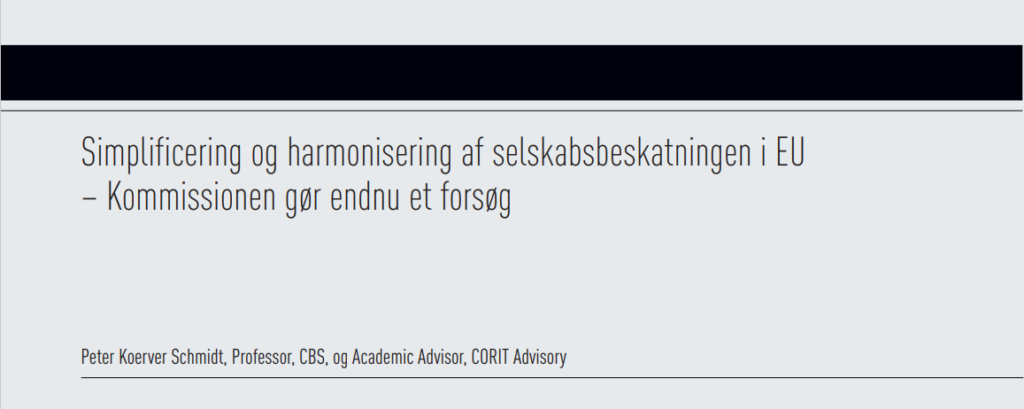CORIT Advisory to act as tax advisors to Blue Phoenix Group
We are pleased being trusted to act as tax advisors to Blue Phoenix Group owned by InfraVia Capital Partners and Daiwa International Capital Partners in the acquisition of RGS Nordic in Denmark. We congratulate all partners on the deal!
Link: https://lnkd.in/emrDnqeb
Portrait of Academic Advisor Peter Koerver Schmidt in Taxo
Our Academic Advisor Peter Koerver Schmidt has recently been portrayed in the Magazine TAXO. Based on his legal research, Peter addresses issues such as corporate tax planning, responsible tax, international developments, tax complexity, and the increasing digitalization of the economy as well as the tax administration.
Access to the full interview can be found through this link:
https://www.karnovgroup.dk/artikler/taxo-03-2034-profil

New article by Jakob Bundgaard
The delineation of royalties in international tax law remains a hot topic. In this article Jakob Bundgaard comments on the recent Indian Hyatt case on the topic.
Read the article here

Amazing news!

New article by Daniel Rath
In a recent article in SR-Skat (SR.2024.69), Daniel Rath has commented on the R&D tax rules, as he provides some comments on the recent developments, the criteria of the rules, and the topic of documentation.
The article is available here

New article by Jakob Bundgaard
Increasingly, states are trying to obtain source taxation. One approach is to identify royalty payments – even where there are none. This situation arises when states argue that payments for services or goods partially comprise payments for the use of or the right to use IP rights – so-called embedded royalties. A recent Australian decision in the PepsiCo case may shed light on the issue. Jakob Bundgaard has authored an article covering the issue, the decision and its wider implications.
Read the article here

New article by Peter Koerver Schmidt
In his latest article, CORIT Academic Advisor Peter Koerver Scmidt deals with the European Commission’s recent proposal to establish a common framework for corporate taxation in the EU in order to achieve a more efficient internal market and reduce administrative costs for groups. The focus is on explaining and discussing essential elements of the proposal, including the scope and the calculation, consolidation, and allocation principles. Peter points out that the proposal (still) contains a number of shortcomings and ambiguities, but also a number of positive elements that could contribute to a better functioning corporate tax regime and bring a number of benefits to the groups covered.

New article by Katja Dyppel Weber
CORIT welcomes Maria Holck Wils to the team
What better way to start the year than by proudly announcing another addition to our growing team.
Maria brings with her some years of M&A experience from a leading law firm. At CORIT she will focus broadly on international corporate tax.

